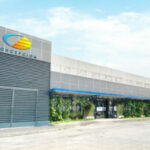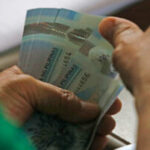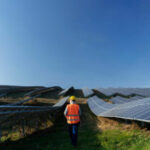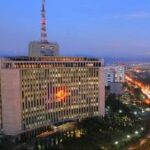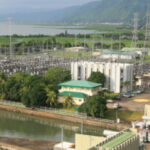
philippine economic development is expected to remain within This year's goal, although the global trade crisis and domestic political clouds of uncertainty may prevailLook, Fitch Ratings said.
“We expect the Philippines' economy to grow by 5.6% in 2025, roughly in line with 2023-2024, driven by traditional growth drivers of large public infrastructure investment, services exports and remittance-financed private consumption,” Fitch Ratings said in a peer credit analysis released on Monday.
The credit rater maintained its Philippine gross domestic product (GDP) forecast for this year at 5.6%, within the government's 5.5-6.5% target.
“Private demand should be supported by lowering inflation and interest rates,” Fitch said.
Headline inflation rose to 1.7% in September, faster than 1.5% in August but slower than the 1.9% clip a year earlier. This brought year-to-date inflation to 1.7%, matching the full-year forecast of the Bangko Sentral ng Pilipinas (BSP).
Earlier this month, the BSP cut its key policy rate by 25 basis points (bps) to a three-year low of 4.75%. This has led to a total reduction in borrowing costs of 175 bps since August last year.
“However, domestic political uncertainty may weigh on investment, with President Ferdinand Marcos's allies performing worse than we expected in the recent midterm elections and the recent corruption scandal,” Fitch said.
Recently, many public worksFOfficials, private contractors and lawmakers have been linked to billions of dollars of corruption involving government flood control projects.
“Global trade tensions are likely to weigh on growth, particularly indirectly through weaker global demand,” Fitch said.
At the same time, Fitch Ratings said its “BBB” rating and “stable” outlook for the Philippines, which it last affirmed in April, reflected the country's strong medium-term growth prospects.
“The 'BBB' rating and 'Stable' outlook reflect the Philippines' strong medium-term growth, supported by a gradual reduction in government debt/GDP and the larger size of the economy relative to 'BBB' peers,” it said. “Despite the rising trend, the rating is constrained by low GDP per capita.”
In the first half, the Philippine economy grew an average of 5.4%, slower than the 6.2% seen in the same period last year.
For his part, Department of Budget and Management (DBM) Undersecretary and Principal Economist Joselito R. Basilio said gross domestic product in the third quarter would likely remain within target. Driven by private consumption.
“(GDP) is most likely on target,” he told reporters on the sidelines of the 2025 fiscal policy conference. On Monday. “The target range is low, isn't it? So, it can be achieved very easily,” he said, referring to the government target of 5.5-6.5%.
Third quarter GDP data will be released on November 7.
Mr Basilio said private consumption could pick up in the third quarter amid lower inflation and interest rates.
“so, Masahan Natin Ngayon 'Yung Private sector driven growth (So, now we can rely on private sector driven growth),” he said.
Mr Basilio said he expected gross domestic product growth to remain on target by the end of the year as the government plans to increase its spending in the coming months.
He said the Development Budget Coordination Committee is scheduled to meet between late November and early December to review its macroeconomic goals.
'Corruption kills development'
Meanwhile, analysts at GlobalSource Partners said rampant corruption in flood control projects has hurt the Philippine economy, preventing it from growing more than 6%.
“These funds, obtained through fraudulent contracts and extrabudgetary budgets, could have built schools, improved hospitals, and created 266,000 jobs. The resulting drag on productivity meant economic growth of 5.5-5.7%, while the economy expanded closer to 6%,” GlobalSource country analysts Diva C. Guinigundo and Wilhelmina C. Manalac said in an Oct. 23 commentary. Could have.”
Finance Secretary Ralph G. Recto had earlier said that these unusual projects could cause a loss of up to P118.5 billion to the economy between 2023 and 2025.
He said, “The moral indictment is clear: corruption saps growth, undermines resilience and erodes trust. When infrastructure becomes a source of private enrichment rather than a public service, the entire development agenda collapses.”
For a developing country like the Philippines, he said good governance is an “economic necessity”, not a “moral luxury”.
“Every peso lost due to corruption is a peso prevented from productive investment. When public functions are marred by ineptitudeFCheating and fraud, they not only waste resources but also undermine the foundations of inclusive growth: connectivity, productivity and resilience,” he said.
“Therefore, exposing corruption in public affairs is more than an anti-corruption exercise – it is a strategy for resilience and development. In the final analysis, the most sustainable infrastructure a nation can build is good governance: a system strong enough to withstand both earthquakes and temptations.” , Katherine K. chan

